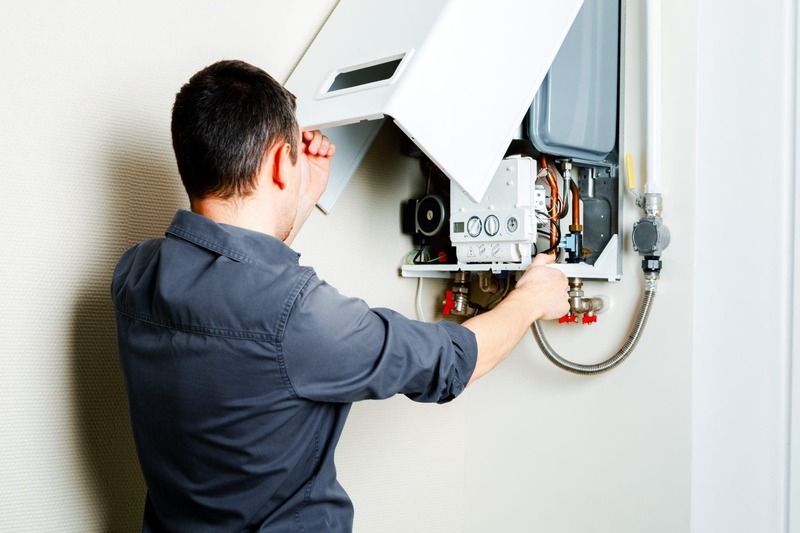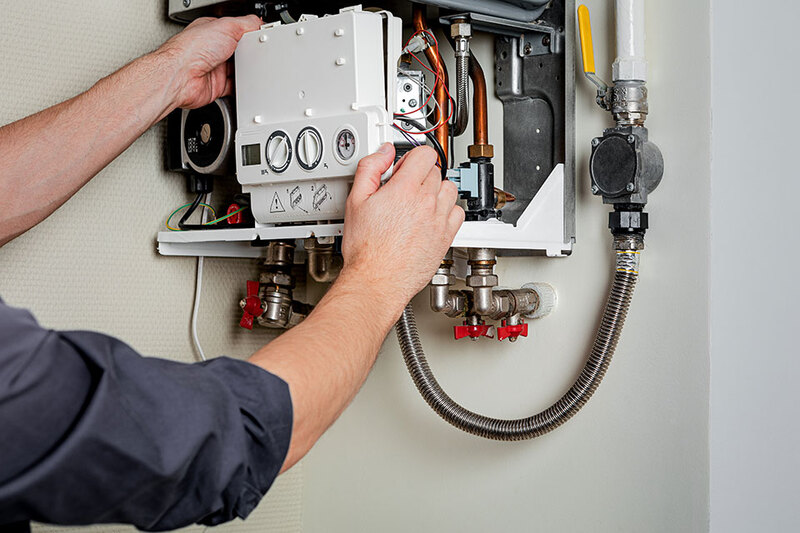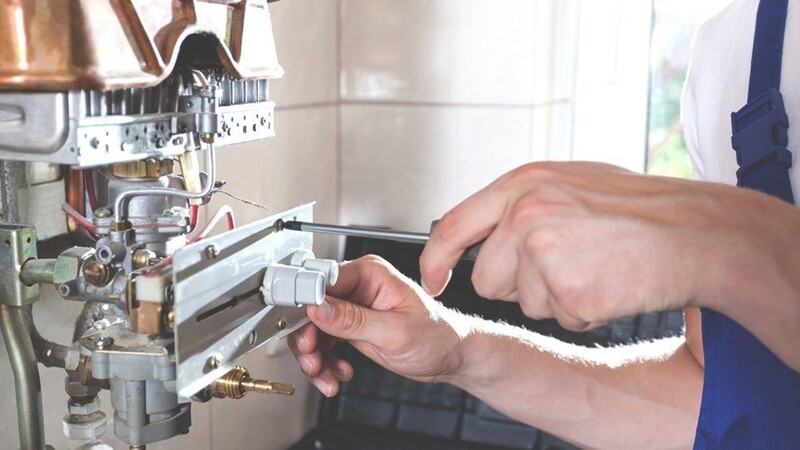In this guide, we’ll walk you through everything you need to know about boiler repair, from common problems and costs to why it’s so important to call in the professionals. Let’s get your home warm and cozy again!
What Is Boiler Repair?

Boiler repair is the process of fixing a faulty or broken boiler to restore it to proper working condition. Boilers are complex machines, and like any appliance, they can develop issues over time. Some common problems that might require repair include:
- No heat or hot water: This is the most obvious sign something’s wrong.
- Strange noises: Banging, clanking, or whistling sounds could indicate a serious issue.
- Leaks: Water pooling around your boiler is never a good sign.
- Pilot light issues: A yellow or flickering flame could mean trouble.
- Pressure problems: If your boiler pressure is too high or too low, it won’t work properly.
If you notice any of these issues, it’s important to call a qualified engineer as soon as possible. Ignoring the problem could lead to more serious (and expensive) damage down the line.
How Much Does Boiler Repair Cost?
The cost of boiler repair can vary widely depending on the problem, the type of boiler you have, and the parts needed. Here’s a rough idea of what you might expect to pay:
- Minor repairs: Simple fixes like replacing a valve or fixing a small leak might cost between £100 and £200.
- Major repairs: If your boiler needs a new heat exchanger or pump, you could be looking at £300 to £1,000 or more.
- Call-out fees: Some companies charge a fee just for coming to diagnose the problem, so always ask about this upfront.
To avoid surprises, it’s a good idea to get quotes from a few different companies before deciding who to hire. And remember, regular boiler servicing can help prevent costly repairs in the future.
What Are the Most Expensive Boiler Parts?

Some parts of your boiler are more expensive to replace than others. Here are a few of the priciest components:
- Heat exchanger: This is the heart of your boiler, responsible for transferring heat to the water. Replacing it can cost anywhere from £500 to £1,500.
- Burner: The burner is essential for heating the water. A new one might set you back £300 to £1,500.
- PCB (Printed Circuit Board): This controls your boiler’s functions. Replacing it can cost £200 to £800.
- Central heating pump: If your pump fails, you’ll need to replace it, which can cost £100 to £500.
Keep in mind that these are just estimates. The actual cost will depend on your boiler’s make and model, as well as the engineer’s labor charges.
What If My Boiler Can’t Be Repaired?
Sometimes, a boiler is beyond repair—especially if it’s old or has suffered major damage. In these cases, you’ll need to consider replacing it. While a new boiler is a big investment, it comes with several benefits:
- Improved efficiency: Newer models are more energy-efficient, which can save you money on your bills.
- Reliability: A new boiler is less likely to break down unexpectedly.
- Better performance: Enjoy faster heating and more consistent hot water.
If you’re not sure whether to repair or replace your boiler, a qualified engineer can help you weigh the pros and cons.
Why Is Boiler Repair So Important?
There are several reasons why you shouldn’t ignore a faulty boiler:
- Safety: A broken boiler can leak carbon monoxide, a colorless, odorless gas that can be deadly. Regular repairs and servicing help prevent this risk.
- Cost savings: Fixing small problems early can prevent them from turning into big, expensive ones.
- Comfort: A working boiler means a warm home and plenty of hot water—essential for staying comfortable, especially in winter.
- Energy efficiency: A well-maintained boiler uses less energy, which is better for the environment and your wallet.
Is Boiler Repair an Emergency?
A broken boiler can definitely feel like an emergency, especially if it happens in the middle of winter. If your boiler stops working completely, leaving you without heat or hot water, it’s important to call a professional right away. Other signs that you need urgent repairs include:
- A yellow or flickering pilot light.
- Loud banging or clanking noises.
- Water leaks or pressure problems.
Even if the issue seems minor, it’s better to get it checked out sooner rather than later.
Why Should I Get My Boiler Serviced?

Regular boiler servicing is one of the best ways to keep your boiler running smoothly. A yearly service can:
- Identify and fix small problems before they become big ones.
- Improve your boiler’s efficiency, saving you money on energy bills.
- Extend the life of your boiler.
- Keep your home safe by checking for issues like carbon monoxide leaks.
Most engineers recommend servicing your boiler once a year, ideally before the winter months when you’ll be relying on it the most.
Final Thoughts
A well-maintained boiler is essential for keeping your home warm, safe, and comfortable. If you’re experiencing problems with your boiler, don’t wait—call a qualified engineer to diagnose and fix the issue. And remember, regular servicing can help prevent breakdowns and extend the life of your boiler.
If you’re unsure whether your boiler needs repair or replacement, a professional can help you make the best decision for your home and budget. Stay warm, stay safe, and don’t let a broken boiler ruin your day!
